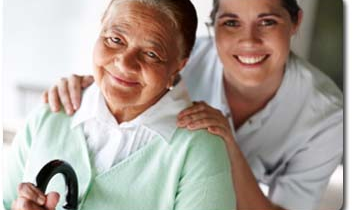While concussions among football players are headline news, many people are not aware a second peak of concussions occurs later in life, typically among the elderly. A concussion is a mild form of traumatic brain injury which rattles the brain inside the skull.
Each year 60,000 emergency room visits and hospitalizations occur among those over the age of 65 due to concussions, and more than half of all concussions in the elderly are due to falls. Studies show that one out of every three elderly people suffers from a fall.
Most people recover from a concussion within a few hours; however most concussions lead to physical, emotional, and mental symptoms. Many times, the patient has loss of consciousness after suffering from a concussion and then wakes up complaining of a headache or ringing in the ears. Other common symptoms among the elderly include memory impairment, behavioral changes, irritability, and disorientation for 24 to 48 hours.
If one notices any of these changes, they should consider immediate attention by a doctor so that they can do a proper exam and order blood work, X-rays, or a CAT scan to further evaluate the injury. Patients taking blood thinners such as Aspirin, ibuprofen, Coumadin, and Plavix, are at a particularly high risk and require closer attention to assess for a brain bleed.
Once the doctor determines the cause of a concussion, the treatment can be tailored depending on the severity of the injury. Most can be treated with rest and hydration, which allows the brain to recuperate from the trauma. Patients suffering from prolonged headaches can take acetaminophen, which is Tylenol. Physicians recommend that patients avoid activities that strain the eyes, such as television and computers, because focused, concentrated activities can put additional stress on a healing brain. However, if there is bleeding, then the patient may need to undergo surgery to remove the blood clot.
The best approach to reduce concussions is to prevent falls. Elderly patients are encouraged to make their homes safer by installing proper lighting, avoiding clutter and removing loose rugs. Also, installing a railing along the stairs provides extra support when going up and down an incline, and walking devices like a cane or walker can provide the needed support for elderly who lack balance.
While concussions are a minor set back for young people, they may lead to loss of independent functioning or a matter of life and death for the elderly


